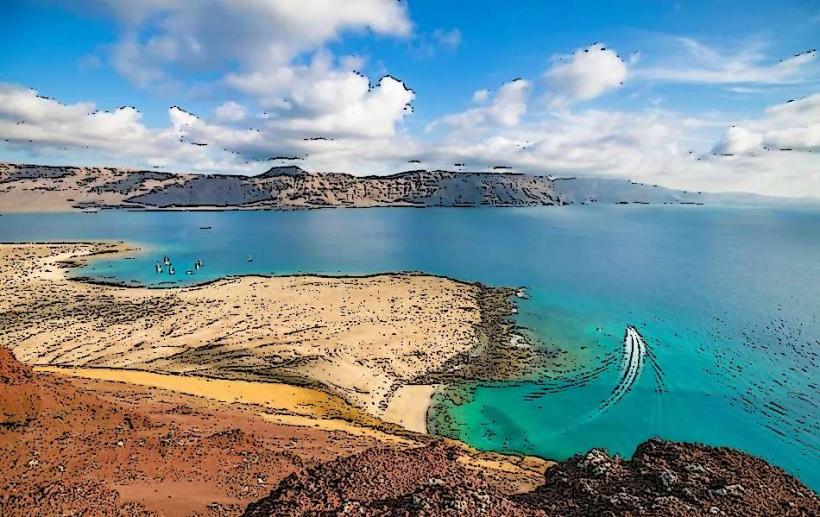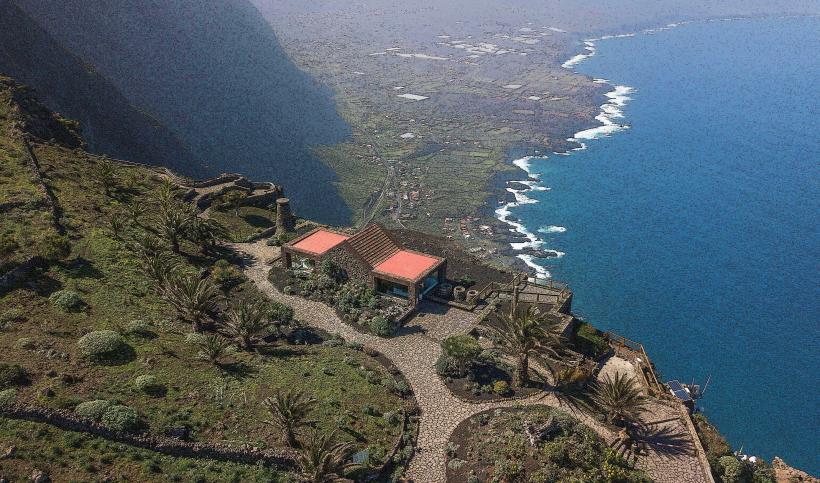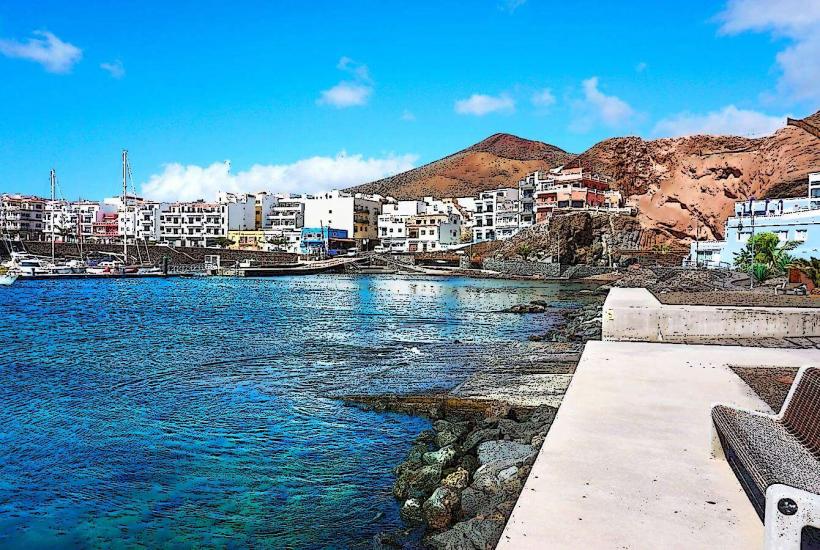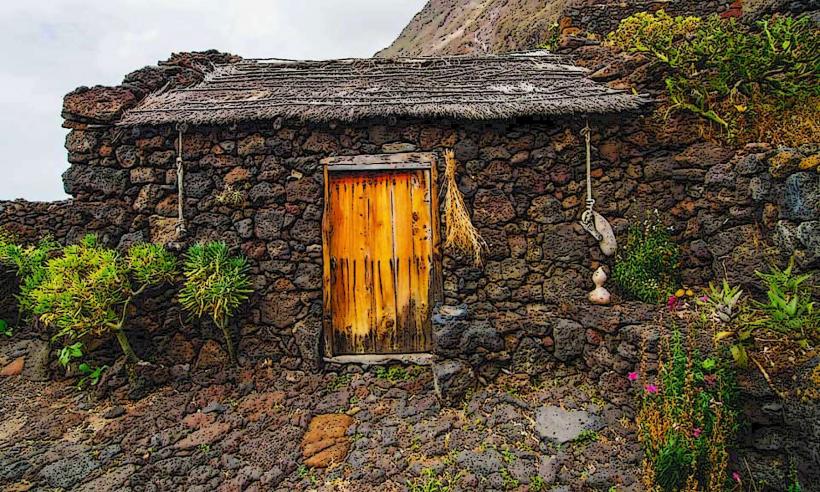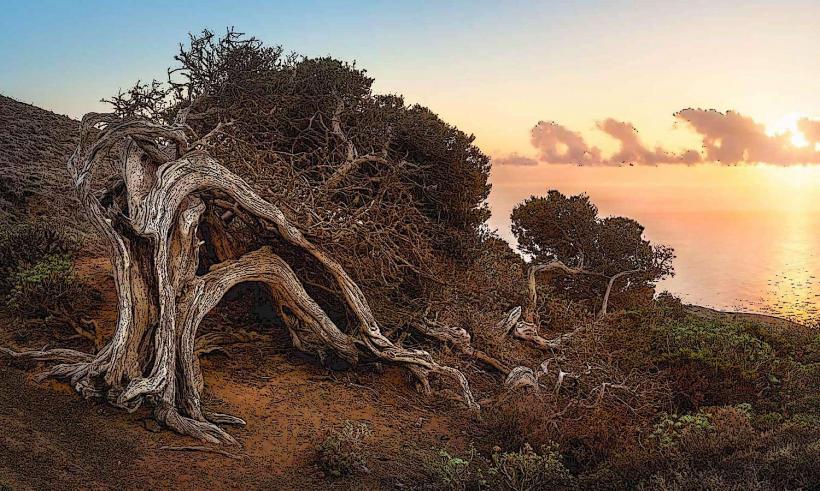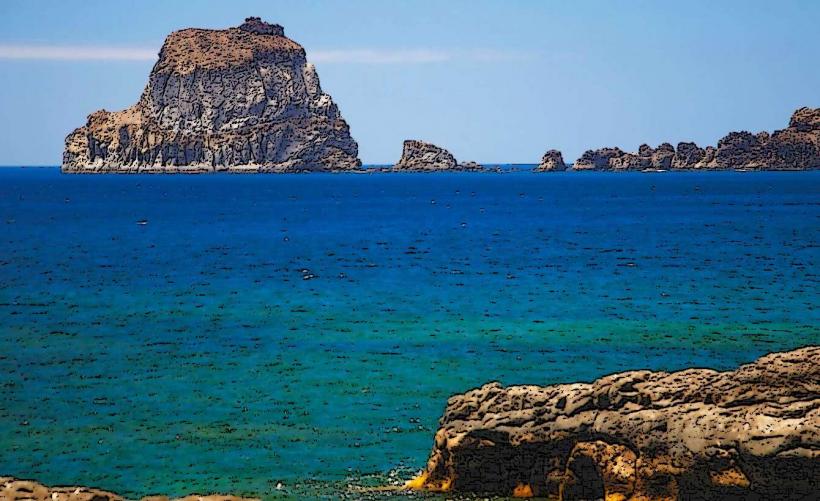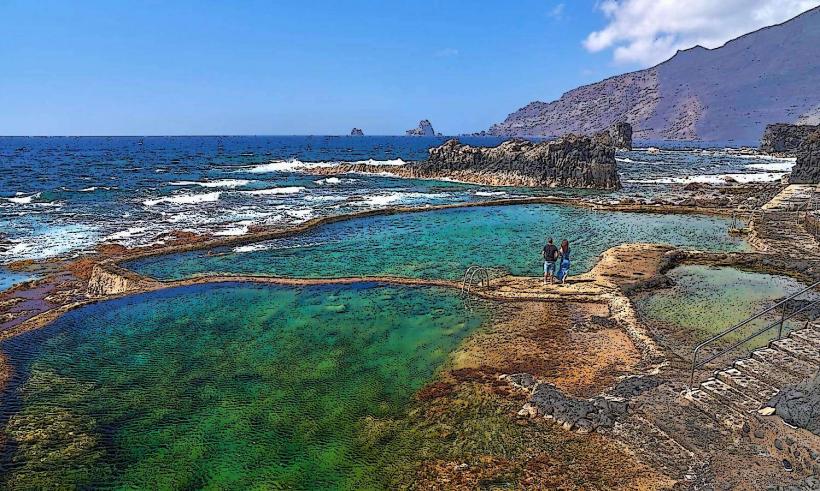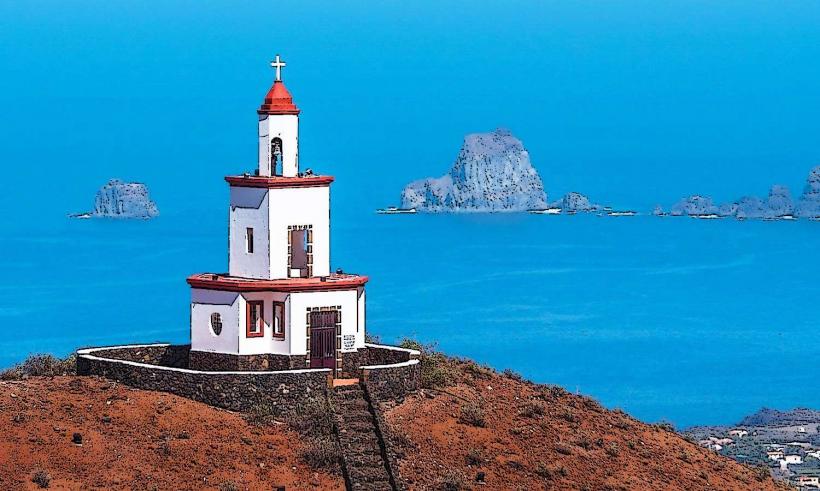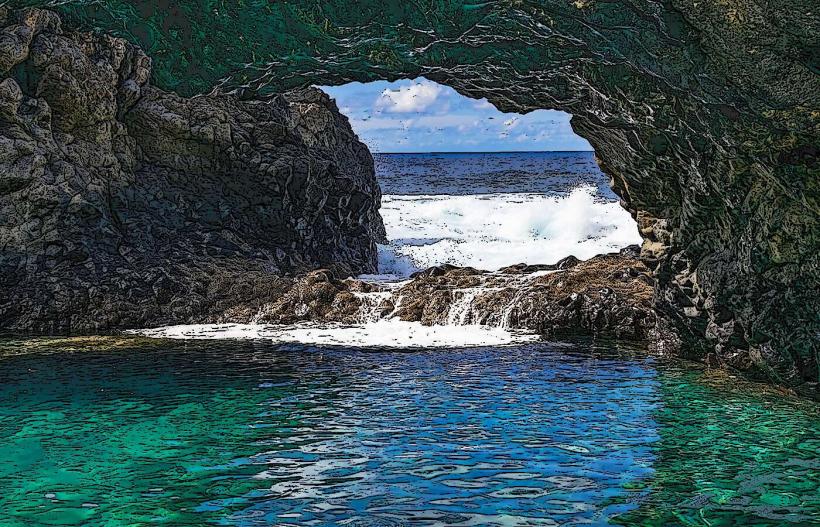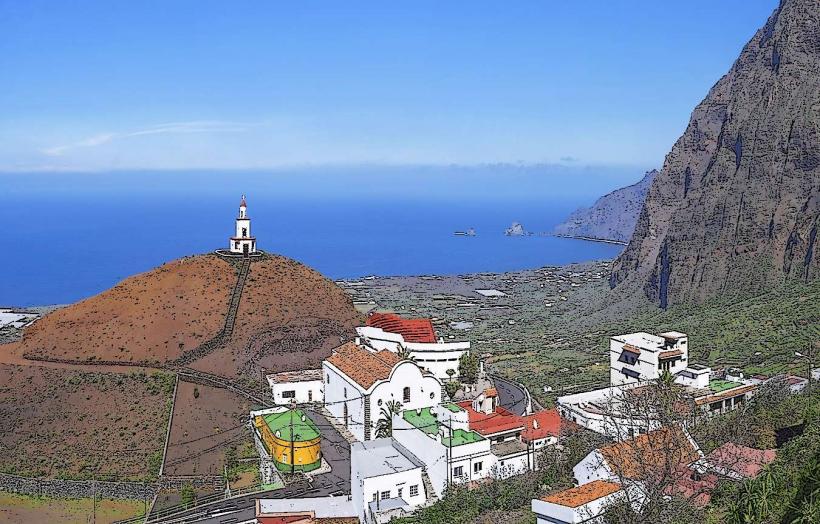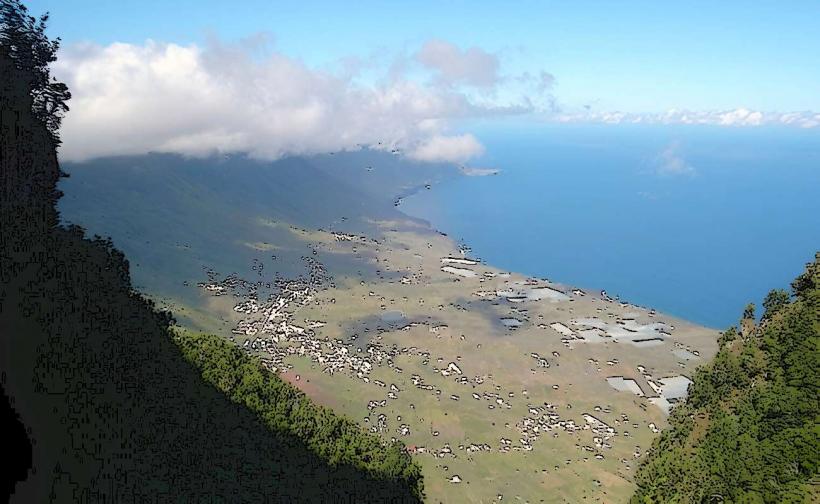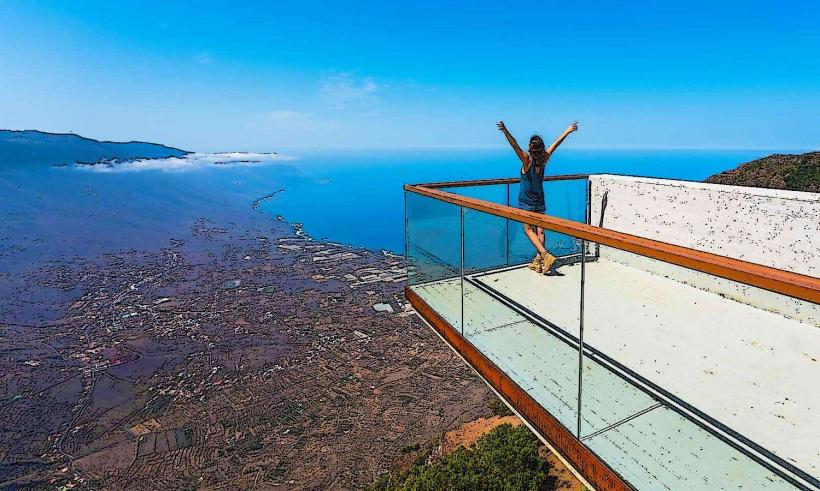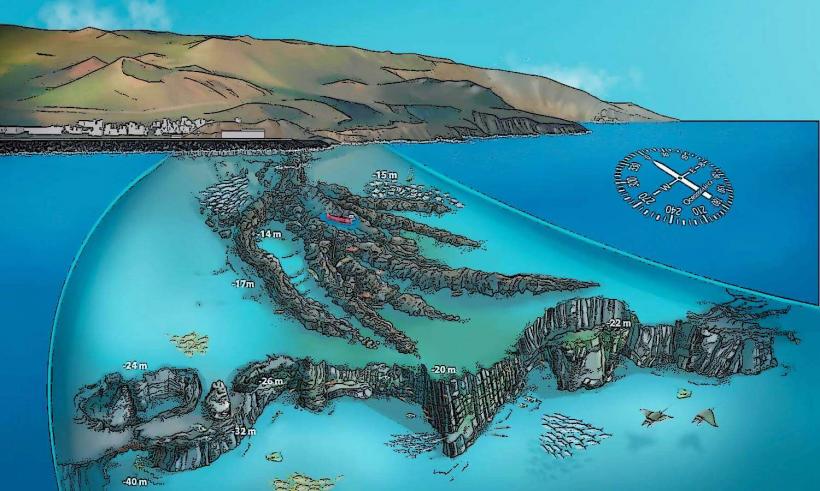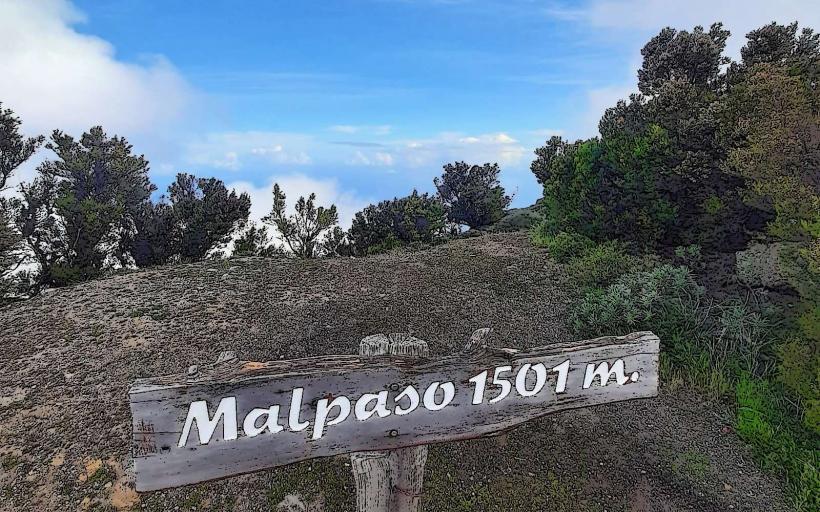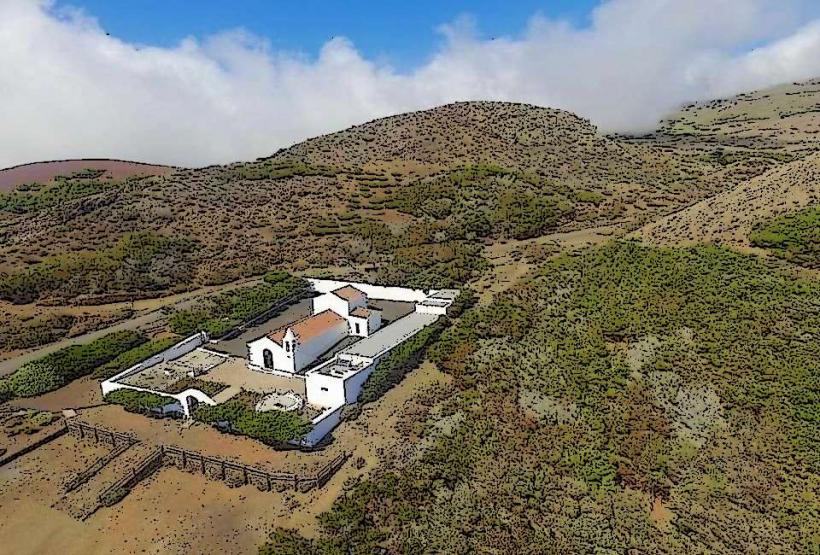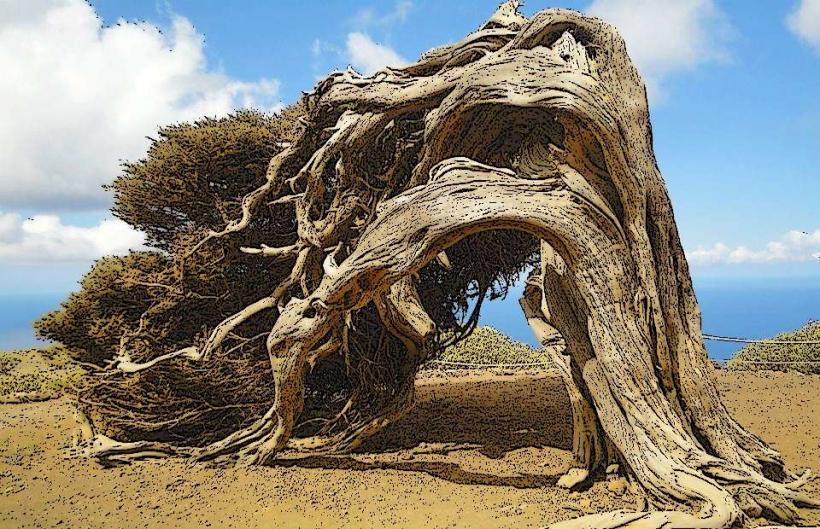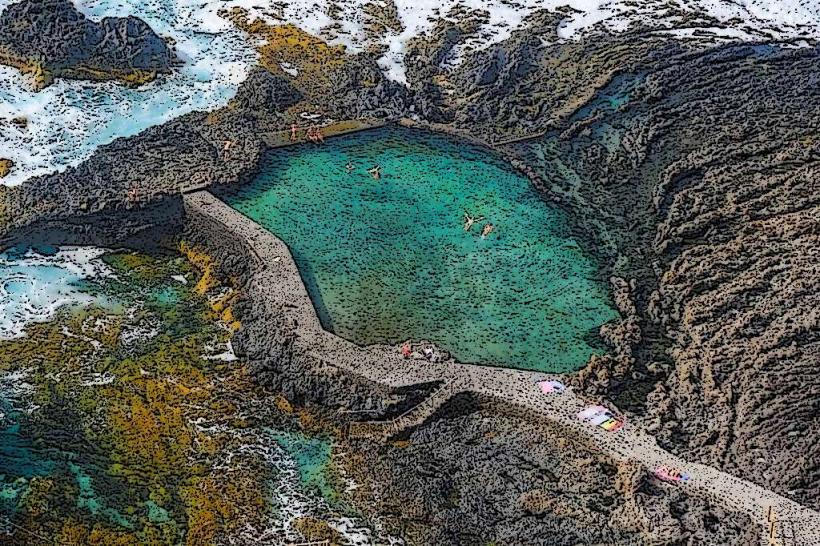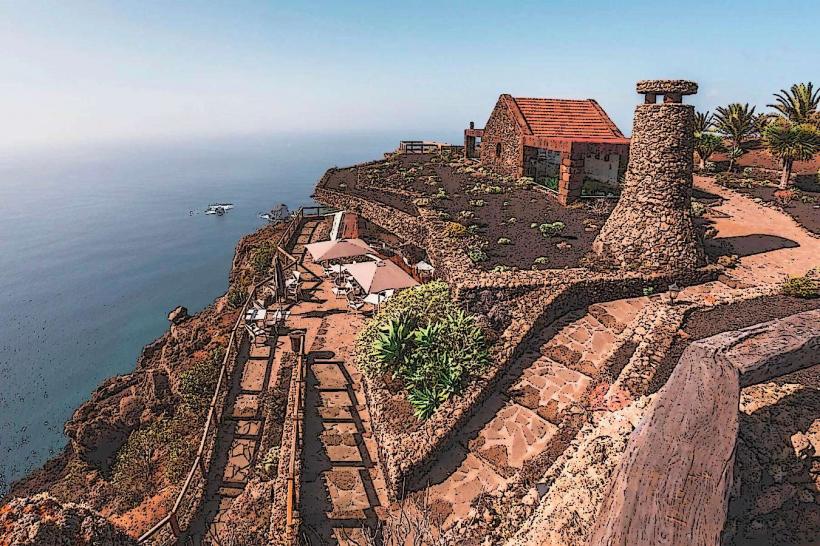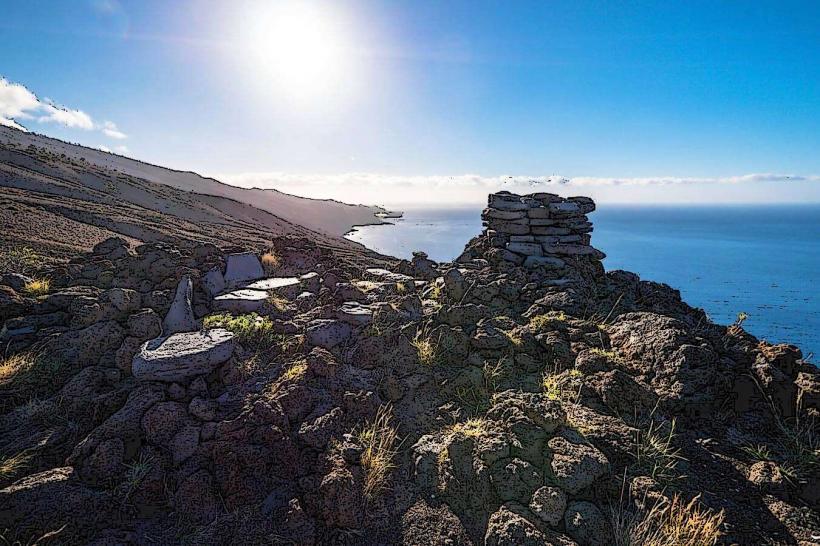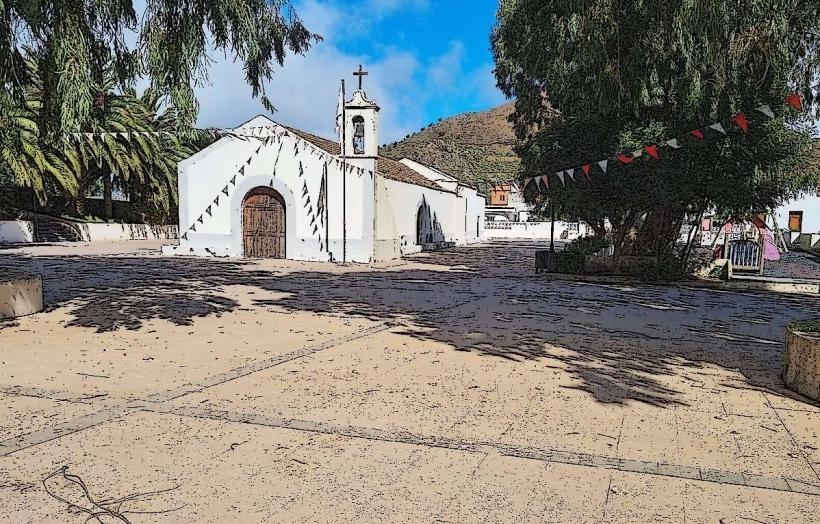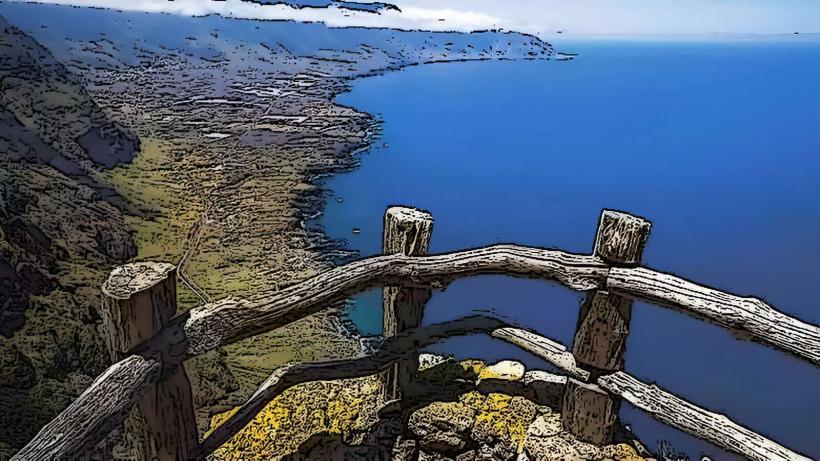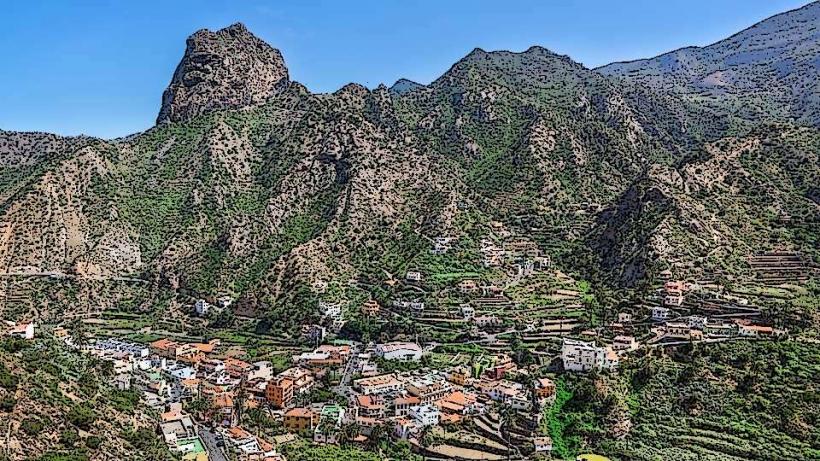Information
Landmark: Pozo de la CandelariaCity: El Hierro
Country: Canary Islands
Continent: Europe
Pozo de la Candelaria is a historic and natural site located on the island of El Hierro, one of the Canary Islands. It is primarily known for its significance as a traditional water reservoir and its association with the island's agricultural history. Here’s a detailed overview of Pozo de la Candelaria:
Location and Geography
- Location: Pozo de la Candelaria is located in the western part of El Hierro, near the town of La Frontera, in the northern part of the island. The area is accessible by car, and it is situated within a rugged, mountainous landscape, making it an interesting destination for those exploring the island's natural beauty.
- Geographical Features: The site is surrounded by volcanic hills and cliffs, with lush green valleys that contrast with the island’s more arid areas. The surrounding landscape is a mixture of forests, volcanic rock formations, and traditional farmland, offering visitors a chance to experience the island's diversity.
Historical Significance
- Water Reservoir: Pozo de la Candelaria is an ancient water well that was traditionally used to store water for the local population. El Hierro, like many of the Canary Islands, has a dry climate, and water resources were historically scarce. This well was vital for providing fresh water for irrigation, drinking, and other agricultural needs.
- Cultural Importance: The well has deep cultural significance for the people of El Hierro, particularly in relation to agriculture and water management. The island has long relied on systems like the Pozo de la Candelaria to survive its dry spells and ensure the productivity of its farms. Over the centuries, it has been a symbol of community resilience in the face of natural challenges.
The Well and Its Architecture
- Construction: The Pozo de la Candelaria is a stone-built well, typically circular or cylindrical in shape. The well is carved from volcanic rock, which is abundant on El Hierro, and it features a deep shaft where water was collected over the years. The architecture of the well is simple but functional, built to store water and maintain its freshness for the local population.
- Water Source: The water collected in Pozo de la Candelaria comes from rainwater and underground springs, which were channeled into the well. The presence of natural springs is a characteristic feature of El Hierro, and the island has developed several similar wells over the centuries to manage its water resources.
Flora and Fauna
- Surrounding Vegetation: The area around Pozo de la Candelaria is characterized by a mix of Canarian laurel forest, scrubby vegetation, and areas of cultivated farmland. Depending on the time of year, the vegetation can be quite lush, particularly in the spring and early summer months, when the island’s flora comes to life.
- Wildlife: The surrounding region is home to various species of birds and small mammals that thrive in the island’s mixed ecosystems. Birdwatching enthusiasts may encounter species like Canary Island warblers or other local songbirds. In the nearby valleys, there are also traces of wild goats and other species typical of the island’s remote areas.
Tourism and Visitor Experience
- Access to Pozo de la Candelaria: The site is somewhat off the beaten path, but it is still accessible to visitors who are interested in exploring the natural and historical heritage of El Hierro. The well can be reached by car or through hiking routes that take visitors through the island’s rugged terrain. The surrounding area also features scenic views of the volcanic landscape and mountainous terrain.
- Hiking and Exploration: While the well itself is a significant historical and cultural site, it is also located in an area known for its hiking trails. Visitors can take walks through the surrounding hills and valleys, enjoying panoramic views of the island's volcanic interior. The region offers a peaceful and remote experience, ideal for those seeking solitude or an escape into nature.
- Educational Value: For those interested in learning about the traditional water management systems of the Canary Islands, Pozo de la Candelaria offers a glimpse into how the island’s inhabitants have historically adapted to the challenges of a dry climate. The well and its surroundings offer an opportunity for cultural and educational exploration, particularly for those keen on the island’s agricultural history.
Cultural and Religious Significance
- Association with the Virgin of Candelaria: The name "Pozo de la Candelaria" (Well of the Candlemas) is linked to the Virgin of Candelaria, the patron saint of the Canary Islands. The name likely reflects the religious and cultural importance of the site. In many parts of the Canary Islands, the Virgin of Candelaria is venerated, and her festival on February 2nd is an important event. The well’s association with this figure adds an extra layer of significance, linking it to the spiritual and cultural traditions of the island.
Best Time to Visit
- Spring and Autumn: The best time to visit Pozo de la Candelaria is during the spring and autumn months, when the weather is mild, and the island is less crowded. Summer can be quite warm, while winter may bring cooler temperatures, although it is still a relatively pleasant time for hiking and exploration.
- Avoiding Crowds: As the site is somewhat remote, it is not as heavily visited as some of the more well-known tourist spots on El Hierro, providing a peaceful atmosphere. However, it is recommended to visit earlier in the day or during weekdays to enjoy the area in tranquility.
Conservation and Preservation
Pozo de la Candelaria is part of El Hierro’s Biosphere Reserve and is protected to ensure its preservation. The traditional water systems and cultural landmarks like Pozo de la Candelaria play a key role in maintaining the island’s identity and history. Efforts are made to protect the site from overdevelopment and to preserve the cultural significance of the area for future generations.
Conclusion
Pozo de la Candelaria is a remarkable and historically significant site on El Hierro, offering visitors a chance to connect with the island’s past and learn about traditional water management systems. With its scenic location, cultural significance, and peaceful atmosphere, Pozo de la Candelaria is an excellent destination for those interested in both nature and history. Whether you're a hiker, photographer, or history enthusiast, the well and its surroundings provide an enriching experience that highlights the resilience and ingenuity of the island’s inhabitants.

